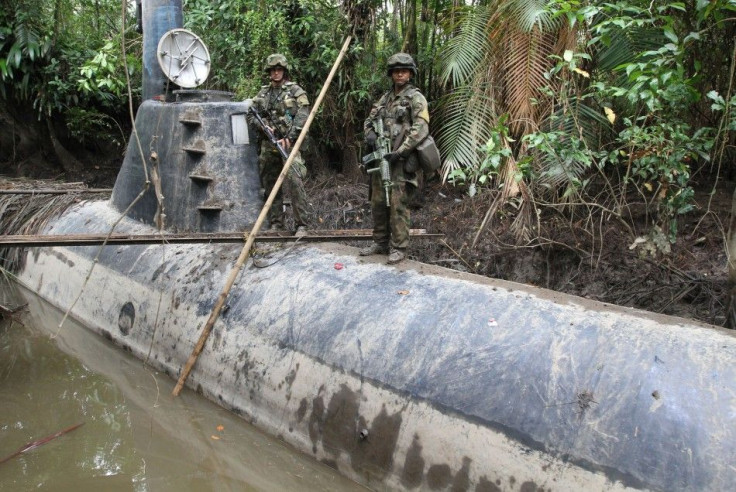Coast Guard Intercepts 'Narco Submarine' with 7.5 Tons of Cocaine

The U.S. Coast Guard captured nearly $180 million worth of cocaine aboard a Carribean narcotics submarine, an increasingly prevalent type of vessel that allows drug traffickers to surreptitiously transport massive amounts of narcotics.
As the Coast Guard cutter "Seneca" approached, the traffickers intentionally sunk the submarine and fled into a yellow life raft. The Coast Guard told ABC News that such narco submarines are designed to be easily sinkable in an effort to help avoid capture.
"It was immediately obvious to our boarding crew that the SPSS [self-propelled semi submersible vessel] was taking on water and was being scuttled by its crew," said Cmdr. Charles Fosse, commander of the Seneca. "We recovered two packages and the SPSS sank seconds after that."
After a separate Coast Guard ship located the submarine's remains, a Federal Bureau of Investigation dive team retrieved some 7.5 tons of cocaine. Lt. Cmdr. Peter Niles, commanding officer of the ship that found the sunken submarine, called the operation a "once-in-a-lifetime" bust.
"I've been here for 27 years and I've never been involved in a drug case like this," he said.
Narco submarines represent a new weapon in drug traffickers' arsenal. Often assembled deep in jungle areas of countries such as Colombia and Ecuador, the subs are capable of traveling long distances, ferrying a substantial amount of narcotics. Officials scrutinizing an Ecuadorian narco sub captured in 2010 called the use of such vessels a "game-changer" and "a legitimate threat."
The submarine was designed to be as efficient as possible, containing a single toilet and no galley or beds. Officials debating how narcotics organizations were attaining the expertise to build submarines speculated that they had contracted outside help from people familiar with the technology.
"The U.S. military is taking this threat very seriously and thinking through all the implications of this sort of platform," said Laurence McCabe, a U.S. Naval War College professor of national security affairs specializing in Latin America, adding that "they have now entered into a world of fairly elite, specialized skill sets, which are much easier to track and identify."
© Copyright IBTimes 2024. All rights reserved.











